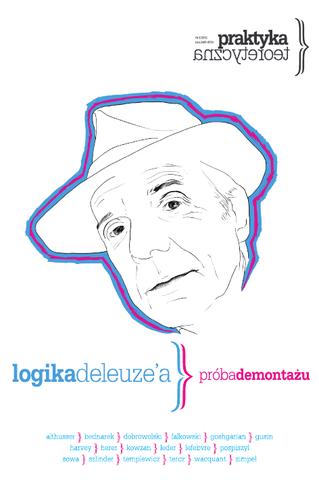Judith A. Jones: Intensity: An Essay in Whiteheadian Ontology (1998)
Filed under book | Tags: · ethics, intensity, metaphysics, ontology, philosophy

A challenging, iconoclastic study that makes clear the underlying unity of Whitehead’s vision of the world.
This important and provocative book on the work of Alfred North Whitehead (1861-1947) explores how his avowed atomism is consistent with his equally essential commitment to a view of reality as a thoroughly interconnected sphere of relations. Judith Jones challenges Whitehead’s readers to reconsider certain prevailing interpretations of his organic philosophy. To Jones, a rereading of Whitehead’s overall philosophic project is essential to evaluating his contributions to metaphysics and ontology. SinceWhitehead’s basic worldview is holistic, a return to viewing Whitehead’s work as a whole helps clarify his ontological intentions and contributions to metaphysics.
For this purpose, the concept of “intensity,” which Jones defines as the quality and form of feeling involved in subjective experience, is basic to Whitehead’s thinking about process at all naturalistic levels and is therefore particularly useful as a lens through which to view his entire system. “Intensity” is at once Whitehead’s most basic metaphysical idea and a notion useful in deciphering the overall unity of purpose in his writings. A central aim of this book is to develop an aesthetically sensitive sense of being that demonstrates the profound and original contributions of process philosophy to realism.
Jones shows that a thorough understanding of the concept of intensity yields modes of thought that help overcome knotty problems in conceiving Whitehead’s distinction between the private experience of individuals and the public relations those individuals experience in relationship to other entities. Drawing frequently on poetic allusions to aid her interpretations, she focuses specifically on the status of intensity in intellectual and moral experience and develops an ethics of “attention” as an elaboration of Whitehead’s aesthetic metaphysics.
The result is a book that should be enthusiastically greeted and debated by scholars of Whitehead and by all who are interested in the field of process thought, including students of theology, literature, and feminist studies. Jones’s unorthodox conclusions, backed up with scrupulous attention to both the Whitehead canon and related secondary literature, present challenges to accepted interpretations that cannot be ignored.
Publisher Vanderbilt University Press, 1998
The Vanderbilt library of American philosophy
ISBN 082651300X, 9780826513007
312 pages
Praktyka Teoretyczna, No. 5: Logika Deleuze’a – próba demontażu (2012) [Polish]
Filed under journal | Tags: · biopolitics, ethics, marxism, neoliberalism, philosophy, psychoanalysis, theory

Na temat statusu Logiki sensu Gillesa Deleuze’a jej osobliwej architektoniki, „neostoickiej” etyki wydarzenia, bezbożnej noologii, relacjach z psychoanalizą – piszą w numerze specjalnym „Praktyki Teoretycznej” Michał Herer, Jakub Tercz, Jacek Dobrowolski, Andrzej Leder, Joanna Bednarek i Michał Gusin. W numerze również obszerny dział Varia, a w nim: kluczowy tekst marksizmu aleatorycznego – O genezie Louisa Althussera wraz z komentarzem G. M. Goshgariana, rozważania Loïca Wacquanta o historycznej antropologii faktycznie istniejącego neoliberalizmu opatrzone repliką Jana Sowy, oraz artykuły Davida Harveya, Henriego Lefebvre’a.
Editors of the issue: Mateusz Falkowski, Anna Wojczyńska
Publisher: Międzywydziałowa „Pracownia Pytań Granicznych” UAM, Poznań, July 2012
ISSN: 2081-8130
310 pages
PDF (single PDF)
View online (HTML/PDF articles)
View online (Issuu.com)
Jeffrey Jerome Cohen (ed.): Animal, Vegetable, Mineral: Ethics and Objects (2012)
Filed under book | Tags: · actor-network theory, animal, ecology, ethics, materialism, nature, object, posthumanism, things

Animal, Mineral, Vegetable examines what happens when we cease to assume that only humans exert agency. Through a careful examination of medieval, early modern and contemporary lifeworlds, these essays collectively argue against ecological anthropocentricity. Sheep, wolves, camels, flowers, chairs, magnets, landscapes, refuse and gems are more than mere objects. They act; they withdraw; they make demands; they connect within lively networks that might foster a new humanism, or that might proceed with indifference towards human affairs. Through what ethics do we respond to these activities and forces? To what futures do these creatures and objects invite us, especially when they appear within the texts and cultures of the “distant” past?
Contents: Jeffrey J. Cohen (George Washington University): “Introduction: All Things” – Karl Steel (Brooklyn College): “With the World, or Bound to Face the Sky: The Postures of the Wolf-Child of Hesse” – Sharon Kinoshita (University of California, Santa Cruz): “Animals and the Medieval Culture of Empire” – Peggy McCracken (University of Michigan): “The Floral and the Human” – Kellie Robertson (University of Wisconsin-Madison): “Exemplary Rocks” – Valerie Allen (John Jay College of Criminal Justice): “Mineral Virtue” – Eileen Joy (Southern Illinois University Edwardsville): “You Are Here: A Manifesto” – Julian Yates (University of Delaware): “Sheep Tracks: Multi-Species Impressions” – Julia Reinhard Lupton (University of California, Irvine): “The Renaissance Res Publica of Things” – Jane Bennett (Johns Hopkins University): “Powers of the Hoard: Further Notes on Material Agency”
Response essays: Lowell Duckert, “Speaking Stones, John Muir, and a Slower (Non)humanities” – Nedda Mehdizadeh, “‘Ruinous Monument’: Transporting Objects in Herbert’s Persepolis” – Jonathan Gil Harris, “Animal, Vegetable, Mineral: Twenty Questions”
Publisher Oliphaunt Books, Washington, DC, an imprint of punctum books, May 2012
ISBN 0615625355, 9780615625355
Creative Commons Attribution-NonCommerical-NoDerivs 3.0 Unported License
310 pages
PDF (updated on 2013-10-12)
Comments (3)
